About the conference
The "Web Archiving: Best Practices for Digital Cultural Heritage" international conference is organized by The National Library of Israel and the Open Media and Information Lab (OMILab) at the Open University of Israel.
The conference – the first of its kind in the country – aims to raise awareness about web archiving in Israel, and to address the importance of web archiving and web archive research for digital cultural heritage. As such, the international scope of the conference is intended to provide best practices and scholarly contextualization for Israeli web archiving, which is still relatively in its infancy.
The conference’s invited speakers are leading researchers and practitioners in the field of web archiving and web historical research from eight countries, including the United States, France, United Kingdom, Denmark, The Netherlands, Belgium, Portugal and Israel. Our distinguished keynote speakers are Prof. Niels Brügger from Aarhus University, Denmark, and Mark Graham, director of the Internet Archive’s Wayback Machine. Both are world-renowned and spearheading research and practice of web archiving. …
The two day conference includes diverse panels dedicated to the institutional, cultural and methodological aspects of web archiving and web historical research. The second day concludes with a special roundtable dedicated to recommendations and insights from the international community for the Israeli case.
The conference is open to the general public and will be held in English.
The conference is accompanied by an interactive exhibition, curated by OMILab research team, which summarizes milestones from 20 years of the Israeli web, using snapshots from the Internet Archive. The interactive exhibition is available here.
Program
Networking & Registration
Opening Session
Chair
Anat Ben DavidWelcoming Remarks

Oren Weinberg,
CEO, The National Library of Israel

Oren Soffer,
Dean of Development & Educational Technology, The Open University of Israel
Opening Keynote
Understanding the archived web as a historical source

Aarhus University, Denmark
Since the online web disappears rapidly, any scholar who wants to include the web of the past in his study has to rely on someone having archived the web. However, the archived web is a peculiar type of historical document, and as a research object it needs to be approached in different ways than other digital media. What is needed is a critical web archive literacy. This presentation outlines the specific nature of the archived web, compared to the online web and to other types of archived documents and media. In addition, it identifies some of the main impacts that the nature of the archived web has on how it can be used as a scholarly source by media and web historians.
Coffee Break

Session I: Institutional Perspectives
Chair
Milka Levy-Rubin
-
Ina web archive: harvested online native content to enhance audiovisual collections
 Claude Mussou
Claude MussouINA - Institut national de l'audiovisuel
In 2006, by law, the Legal Deposit was extended to the Web, and Ina, Institut National de l’Audiovisuel, the French National audiovisual archive was appointed to harvest web content that would complement and enrich its Radio and Television collections. Today, Ina's rich media web archive is the second largest web archive in the world, available for research usage with dedicated tools and interfaces. The presentation will offer a general overview of the legal framework that allows Ina to collect web content, and of the way it is harvested, organized and made available for research purposes.
-
Arquivo.pt: past, present and future
 Daniel Gomes
Daniel GomesArquivo.pt (the Portuguese web-archive)
Arquivo.pt is a research infrastructure that preserves millions of files collected from the web since 1996 and provides a public search service for this information. Its main objective is the preservation of online information related to the Portuguese community and European science. It contains information in several languages, provides Application Programming Interfaces to facilitate the development of added-value applications and user interfaces in English. In 2017, 53% of its users were hosted outside of Portugal. In 2017, we celebrated 10 years since the project start. This presentation will provide an overview of our past, present and future activities.
-
Investigating the PROMISE of a Belgian web-archive
 Sally Chambers
Sally ChambersGhent University
The Belgian web is not currently systematically archived. As a result, there is a considerable risk that a significant portion of Belgian contemporary history will be lost forever. To prevent this, the Belgian Science Policy Office (BELSPO) funded the PROMISE (Preserving Online Multiple Information: towards a Belgian Strategy) project The aim of PROMISE is to: (i) identify current best practices in web-archiving (ii) pilot web-archiving in Belgium, including access (and use) for scientific research, and (iii) make recommendations for a sustainable web-archiving service for Belgium. This paper will present the current status of the PROMISE project, including the latest results.
Lunch

Session II: Cultural Perspectives
Chair
Anne Helmond-
Robots in the archive: new media histories and the feeling of time
 Megan Sapnar Ankerson
Megan Sapnar AnkersonUniversity of Michigan
Should web archives count as primary sources like other historical records stored in physical archives? Or should we understand Wayback Machine snapshots as robot-generated reconstructions that are subject to the interpretation of algorithms? How do web crawlers unsettle assumptions about what history and evidence even mean in the age of algorithms and big data? This talk approaches these expansive questions about the status of the archive in the digital age by comparing contemporary discourses of archives as “time travel” and “time machines” with early 20th century cultural imaginaries that articulated the archival potential of photography and cinema to new ways of storing, accessing, and experiencing time.
-
On Everything: navigating symbolic and material economies of software preservation
 Michael Stevenson
Michael StevensonUniversity of Amsterdam
The Everything Development Engine was released in 1999. It was software for building advanced interactive websites. It was built in Perl and had wacky features, and it was part of a larger wave of open-source hype. Everything was weird and subversive, yet it was going to make money. It could only have existed in a specific historical moment. This talk introduces the particular configuration of material and symbolic economies that gave rise to Everything, setting up an analysis of how these economies extend and mutate within the contemporary problem of bringing such software back to life.
-
Sharing files with strangers: The moral economy of shareware
 Kevin Driscoll
Kevin DriscollUniversity of Virginia
In the early 1980s, trading files was the raison d'être for many bulletin board systems. Hobbyist magazines portrayed the Net as a downloader's paradise, enjoining readers to "plunder the airwaves for free software." Rather than fight so-called "pirates", shareware authors encouraged the circulation of their programs, enclosing a personal request for payment with each one. Proponents lauded shareware's "honor code" but the phenomenon has since disappeared from our collective memory. Revisiting the history of shareware reveals an alternative vision of a decentralized software industry based on mutual support, fellowship, and a sense of moral obligation among peers.
Coffee Break

Closing Keynote
Chair
Vered Silber-Varod
Universal Access to All Knowledge

Internet Archive
For more than 20 years the Internet Archive has been collecting “born digital” content, digitizing analog content (Books, TV News, Movies, Images, etc.) and freely sharing it all. Toward the goal of helping to make the Web more useful and reliable they are continuously improving the collection, management and publication of web archives via the Wayback Machine. Mark will share what they have learned in this process, shed light on the road ahead, and suggest opportunities for others to engage.
Networking & Registration
Session III: Web History in a Changing Media Environment
Chair
Zef Segal
-
The Internet has always been about sharing. Or has it?
 Nicholas John
Nicholas JohnThe Hebrew University of Jerusalem
According to popular wisdom, the internet has always been about sharing. However, a glance at how the internet was spoken about in its early years shows the prevalence of alternative metaphors (“gifting”, for instance). So when did the internet come to be about sharing? What does this tell us about sharing? And what does it tell us about the internet and its purported prosociality?
-
Using web archives and software repositories to examine the evolution of apps
 Anne Helmond
Anne HelmondUniversity of Amsterdam
In this talk I explore the utility of web archives and online software repositories to chronicle the evolution of apps and their ecosystems. Mobile apps have become an important media form for communicating and sharing content. As ephemeral media that are continuously updated, older versions are rendered unavailable. Since app stores do not publicly archive apps this poses serious challenges for understanding past apps and app ecosystems. However, the Internet Archive has archived sizable parts of the main app stores, enabling new and unique opportunities for app historiography. In addition, software repositories like APK archives store older versions of Android apps that can be used to examine app evolution. I reflect on the methodological opportunities and challenges of using web archives and software repositories for writing histories of apps and ecosystems.
-
Using web archives for studying online participation. The case of cultural heritage collaborative platforms
 Marta Severo
Marta SeveroUniversity of Paris Nanterre
In the last twenty years, citizen science as emerged as a growing phenomenon that facilitates the participation of citizens in the institutions’ activities of definition of scientific objects. Born in hard science sectors such as astronomy and biology, it has been recently enlarged to other fields such as cultural heritage. Recently, cultural institutions have launched several experiments in order to build open and collaborative inventories on the web. These collaborative platforms can be based on forums, wikis, folksonomies or other crowdsourcing tools. Yet, it has to be noticed that such initiatives have been often short and experimental or they have been undergoing several intermediary steps. Considering all this, web archives can be very useful in order to map through time this phenomenon and identify long-term trends in the editorialization of these platforms.
Coffee Break

Session IV: Computational Approaches to Web Archive Research
Chair
Daniel Gomes-
Why is it challenging to study web archives with computational methods?
 Anat Ben David
Anat Ben DavidThe Open University of Israel
The ‘computational turn’ is advocated as a paradigmatic shift in the Digital Humanities. However, is this ‘turn’ needed for studying the archived web computationally, if the web is a computational medium to begin with? In this talk I explain why, despite the apparent structural fit, the marriage between web archives and computational methods is in fact a misfit. After outlining some of the challenges hindering researchers from using computational methods for web archive research, I will argue that this marriage between medium and method will breed progeny only if the computational methods are specifically adapted to address the unique characteristics of the archived web. I further suggest four computational methods specifically designed for researching the Internet Archive, and explain their utility in expanding the scale, scope, and analytical context. The presentation concludes with a discussion of the limits of the computational approach in answering historical questions using web archives.
-
Introducing Web Fragments: An exploration of web archives beyond the webpages
 Quentin Lobbe
Quentin LobbeTelecom Paris Tech
Our research is concerned with the exploration of a corpus of Web archives related on on-line activities associated with migrant populations. We follow the idea that the structure and content of Web archives can be permeable to the effects of shocks and external events, political and social mobilizations, etc. In this regard, we have proposed a methodology based on a new object named Web Fragment to face the wide scale of the data and challenge the ability to make sense of it in a meaningful manner for users who are not computer scientists: sociologists and historians.
Coffee Break

Session V: Sociological Perspectives
Chair
Claude Mussou-
The web as a space for counter-memory : North African memories on the French Web Archives
 Sophie Gebeil
Sophie GebeilUniversity of Marseilles
The development of the Web at the end of the1990’s opened up a new space of expression in France for memories of North African immigration: stories of immigrant workers and their families living in slums on the outskirts of the big cities during the seventies, the promotion of Maghrebi cultural heritage, as well as memories of anti-colonial struggles and anti-racist movements. These memories shattered the institutional consensus of a France that had been portrayed as an ancestral land of welcome for the immigrants. Whereas the Web plays an essential role in how the past is represented, the National Audiovisual Institute and the National Library of France Web archives are a fundamental source for contemporary historians in the 2000s. Founded on a social and qualitative approach, this presentation will focus on colonial and post-colonial issues through the mediation of North African immigration memories on the French Web from 1999 to today.
-
Understanding religious networks in the archived Web
 Peter Webster
Peter WebsterIndependent Researcher
The advent of the archived Web, and in particular the availability of large-scale historic data about the Web and the hyperlinks that bind it together, opens up new vistas of possibility for the student of historical networks, including networks of religious organizations and individuals. This talk draws on recent research on two aspects of conservative Protestantism in the UK - the churches of Northern Ireland, and the creationist movement in the whole UK - to outline an agenda for future investigation of contemporary religious history as it is reflected in the traces of the past Web.
-
Providing an historical archive on migration
 Dana Diminescu
Dana DiminescuTelecom Paris Tech
The masses of data generated by populations on the move and diasporas often crop up in research and are an increasing challenge to the traditional ‘working’ of the humanities and social sciences, in their methods but also in their categories, paradigms and ethical approaches. How can we make use of this new ‘raw material’ in our research on migrations? What is the best way to organise the articulation of subjects and methodology in this context? How can the new methods imported from the exact sciences (statistical processing, analysis of graphs) be articulated with the qualitative research with which they sometimes conflict? Finally, and more generally speaking, what epistemological concepts can we propose to accompany the development of digitalisation and can we speak of a digital theory of migration based on web archives?
Lunch

Roundtable
Moderator
Anat Ben David ,
The Open University of Israel
Best practices for the Israeli Web Archive
Participants:
Aarhus University

C2DH, University of Luxembourg

Channel TEN

Yaron Deutscher
The National Library of Israel
Speakers
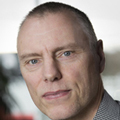
Aarhus University,
Denmark
Niels Brügger is Professor in Internet studies and Digital Humanities, and head of the Centre for Internet Studies as well as of the internet research infrastructure NetLab, Aarhus University, Denmark. His research interests are web historiography, web archiving, and media theory. Within these fields he has published monographs and a number of edited books as well as articles and book chapters. Recent publications include Web25, a themed issue of New Media & Society, The Web as History: Using Web Archives to Understand the Past and the Present (edited with Ralph Schroeder, UCL Press 2017), and Web 25: Histories from the first 25 years of the World Wide Web (Peter Lang 2017). He is co-founder and Managing Editor of the newly founded international journal Internet Histories: Digital Technology, Culture and Society (Taylor & Francis/Routledge).
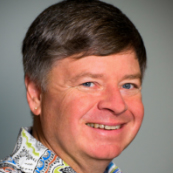
The Internet Archive
Mark Graham has created and managed innovative online products and services since 1984. As Director of the Wayback Machine, at the Internet Archive, he is responsible for capturing, preserving more than 1 billion new web archives each week and helping millions of people discover and use them, Mark was most recently Senior Vice President with NBC News where he managed several business units including GardenWeb and Stringwire, a live, mobile, video platform for collaborative citizen reporting. Mark was Senior Vice President of Technology with iVillage, an early Internet company that focused on women and community. He co-founded Rojo Networks, one of the first large-scale feed aggregators and personalized blog readers (sold to Six Apart.) In the early days of the net he managed technology and business development at The WELL and led their effort to build the first web-based interface for online forums, and also helped bring the pre-web Internet to millions of people by running AOL's Gopher project as part of their Internet Center. He managed technology for the pioneering US-Soviet Sovam Teleport email service and co-founded and managed PeaceNet, one of the first online communities for progressive social change, and later IGC.org, one of the world first ISPs. He also co-founded the global NGO, APC.org. Mark's early training and experience with computer-mediated communications was acquired while he served in the US Air Force, spending more than 3 years working at the Air Force Data Services Center at the Pentagon. Mark's nonprofit work includes volunteering with the open education library http://oercommons.org and as an advisor to http://openrecoverysf.org
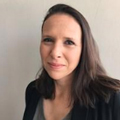
The Open University of Israel
Anat Ben-David is a senior lecturer in the Department of Sociology, Political Science and Communication. She is co-founder of the Open University's Open Media and Information Lab (OMILab). Focusing on New Media, her primary research interests are history and geopolitics of the Web, Digital STS, social and political studies of social media, and digital and computational methods for Web research.
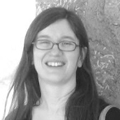
Ghent Centre for Digital Humanities, Belgium
Sally Chambers is Digital Humanities Research Coordinator at Ghent Centre for Digital Humanities , Ghent University, where she coordinates Belgian participation in DARIAH, the Digital Research Infrastructure for the Arts and Humanities. Her role in the PROMISE project is related to the provision of research access and use of the pilot Belgian web-archive.

Telecom Paris Tech
Dana Diminescu is Senior Lecturer/Associate Professor in sociology at Télécom ParisTech engineering school. At present she is director of DiasporasLab and member of the Cultural Analytics programm at IPAM/UCLA .She is known for her work on the “connected migrant”, (her empirical work enabled her to approach varied fields ranging from uses of mobile phone and voice IT, Internet, m-transactions by migrants in a variety of transnational and local use situations: mobility and mobilisation, integration strategies, cross-bordering, web diasporas, ethnic business, migration lifecycles) and for a number of epistemological and methodological innovations in her research, questioning classical theories in migration studies. In particular, she designed and co-ordinated the e-Diasporas Atlas project, which was first runner up of its category for the 2012 Digital Humanities Awards. Websites:
http://www.e-diasporas.fr/
https://remi.revues.org/6961
http://ssi.sagepub.com/content/51/4.toc
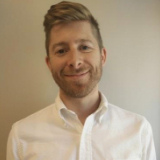
University of Virginia
Kevin Driscoll is an assistant professor in the Department of Media Studies at the University of Virginia. His research explores popular culture, political communication, and networked personal computing. Last year, he published a technical and cultural history of the French Minitel system with Julien Mailland from Indiana University. Currently, he is writing a book tracing the pre-history of social media through the dial-up bulletin board systems of the 1980s and 1990s.

Channel TEN
Eran Soroka is the Chief Editor of 10.TV - the website of Channel 10, one of Israel's commercial channels. In 2013, after 17 years of working as a reporter, editor and Sports Chief Editor in both print and web, Soroka joined Channel 10 as Head of Digital News Desk, and in 2016 was appointed as the site's Chief Editor, while also being in charge of replacing the channel's digital platform to a new and better site. Soroka obtained his MA from Tel Aviv University in Political Communication in 2009, after obtaining a BA in Communication and Political Science in 2006. In 2010, he also participated in the US State Dept's IVLP (International Visitors Leadership Program) for journalists. In his daily work, as he did in his studies, Soroka explores and experiences first-hand the rapidly changing world of digital media.

University of Marseilles
Dr. Sophie Gebeil is a senior lecturer in contemporary history at Aix Marseille University (France). She teaches at the Higher schools for professors and educators and she oversees the «Visual studies and Digital humanities» workshop at the Telemme research laboratory (AMU CNRS, UMR 7303). She is working on how the past is portrayed online, through studying memories, and heritage from minority groups on French web archives.
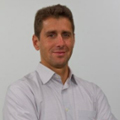
Arquivo.pt, Portugal
Daniel Gomes started Arquivo.pt (the Portuguese web-archive) and currently leads this public service. His PhD thesis in Computer Science focused on the design of large-scale systems for the processing of web data. He has been a researcher in web archiving and web-based information systems since 2001.
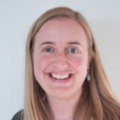
University of Amserdam
Anne Helmond (@silvertje) is Assistant Professor of New Media and Digital Culture at the University of Amsterdam. She is a member of the Digital Methods Initiative and App Studies Initiative research collectives where she focuses her research on the infrastructure of social media platforms and apps. She currently holds a Veni grant from the Netherlands Organisation for Scientific Research (NWO) for the project ‘App ecosystems: A critical history of apps’ (2017–2020). More info: annehelmond.nl
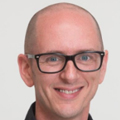
The Hebrew University of Jerusalem
Nicholas John is a Senior Lecturer at the Department of Communication at the Hebrew University of Jerusalem. He is the author of the award-winning book, The Age of Sharing, which traces the emergence of “sharing” as a key cultural concept for the digital age. He also studies disconnectivity, in particular politically-motivated unfriending on social media platforms.
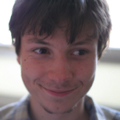
Telecom Paris Tech
Quentin Lobbé is a PhD candidate at Télécom ParisTech engineering school. He graduated from the University of Technology of Compiègne in 2013 with a master's degree in Data Mining & Data Visualization. Supervised by Pierre Senellart & Dana Diminescu, he works at the intersection between Social Sciences and Computer Sciences by studying digital traces of migrations through the exploration of Web archives corpora.
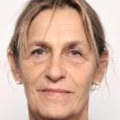
INA - Institut national de l'audiovisuel
When the Web Legal Deposit was implemented in France, Claude Mussou was appointed as coordinator of the web archiving activities at Ina. Since 2015 she is head of Inathèque, Ina’s department that makes all the collections available for research. (http://www.inatheque.fr)
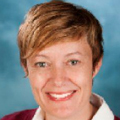
The University of Michigan
Megan Sapnar Ankerson is an Assistant Professor in Communication Studies at the University of Michigan. She is the author of the forthcoming book Dot-com Design: The Rise of a Usable, Social, Commercial Web (NYU Press, July 2018) and co-editor of the journal Internet Histories: Digital Technology, Culture and Society. https://lsa.umich.edu/comm/people/regular-faculty/ankerson.html
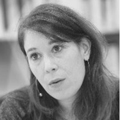
C2DH, University of Luxembourg
Valérie Schafer is Professor of Contemporary European History at the C2DH (Luxembourg Centre for Contemporary and Digital History) at the University of Luxembourg since February 2018. She was previously researcher at the French National Centre for Scientific Research (CNRS), where she led the Web90 project, dedicated to the history, memories and heritage of the Web of the 90s in France (https://web90.hypotheses.org) Her main research interests are the history of Internet, of the Web, of Digital Cultures and the Born-digital heritage, especially Web archives.
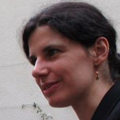
University of Paris Nanterre
Marta Severo is Associate Professor in Communication at the University of Paris Nanterre where she is in charge of the Open Data mission. She is a member and Deputy Director of the Dicen Laboratory. She actively participates in the research of the laboratory by coordinating the cultural heritage, cultures and archives subject areas. Her research focuses on action research in social sciences through web-based data. Her research activities focus on two thematic areas: (i) the collaborative construction of cultural heritage and memories on the web and (ii) the digital representations of place and space. She counts several publications in national and international journals. She has recently edited the books Patrimoine culturel immatériel et numérique (L’Harmattan, 2017) et Traces numériques et territoires (Presses de Mines, 2015). Website: www.martasevero.com
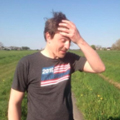
University of Amsterdam
Michael Stevenson is a web historian, and Associate Professor of New Media & Digital Culture in the Media Studies Department at the University of Amsterdam. His work is broadly about the roots and foundations of media practices, genres and forms that are considered ‘web-native’ or otherwise specific to the new media landscape. He is currently working on 'The Web that Was,' a project funded by the Dutch National Science Foundation (NWO), about the Perl programming language and the early web. He is still learning.
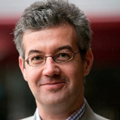
Independent Researcher
Dr. Peter Webster is an historian of contemporary British religious history, based in the UK. He has published widely on: religion, politics and national identity; on evangelical Protestantism, and on the impact of the archived Web on historical practice. He is founder and managing director of Webster Research and Consulting, helping libraries, archives and universities provide better digital services for their researchers. https://peterwebster.me/about/
Travel & Venue
Location:
The National Library of Israel,
Edmond J. Safra Campus,
Givat Ram, Jerusalem, Israel.
Bus lines: 7, 7H, 9, 14, 35, 35H, 42, 66, 66H, 68.


